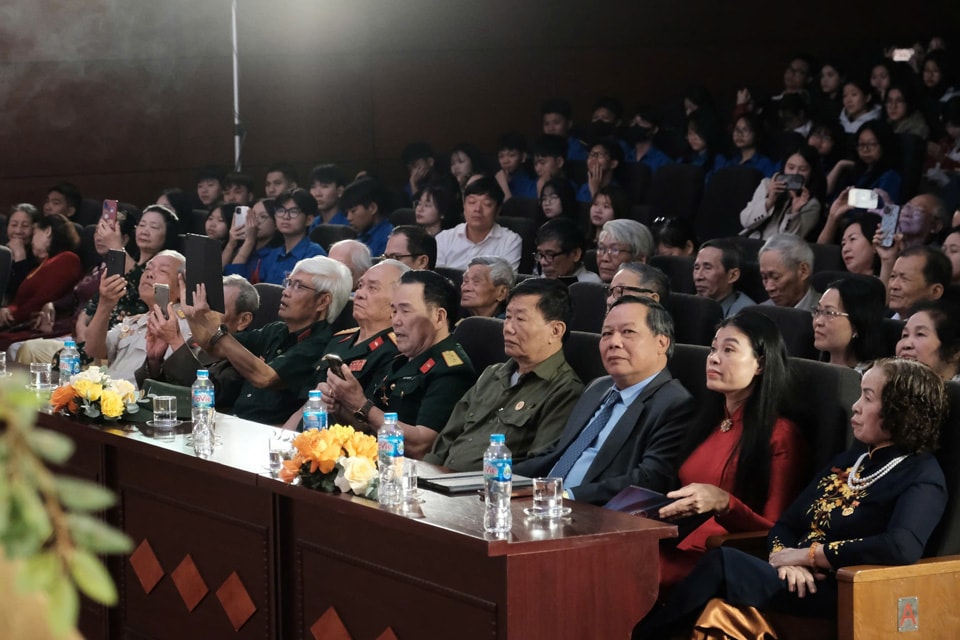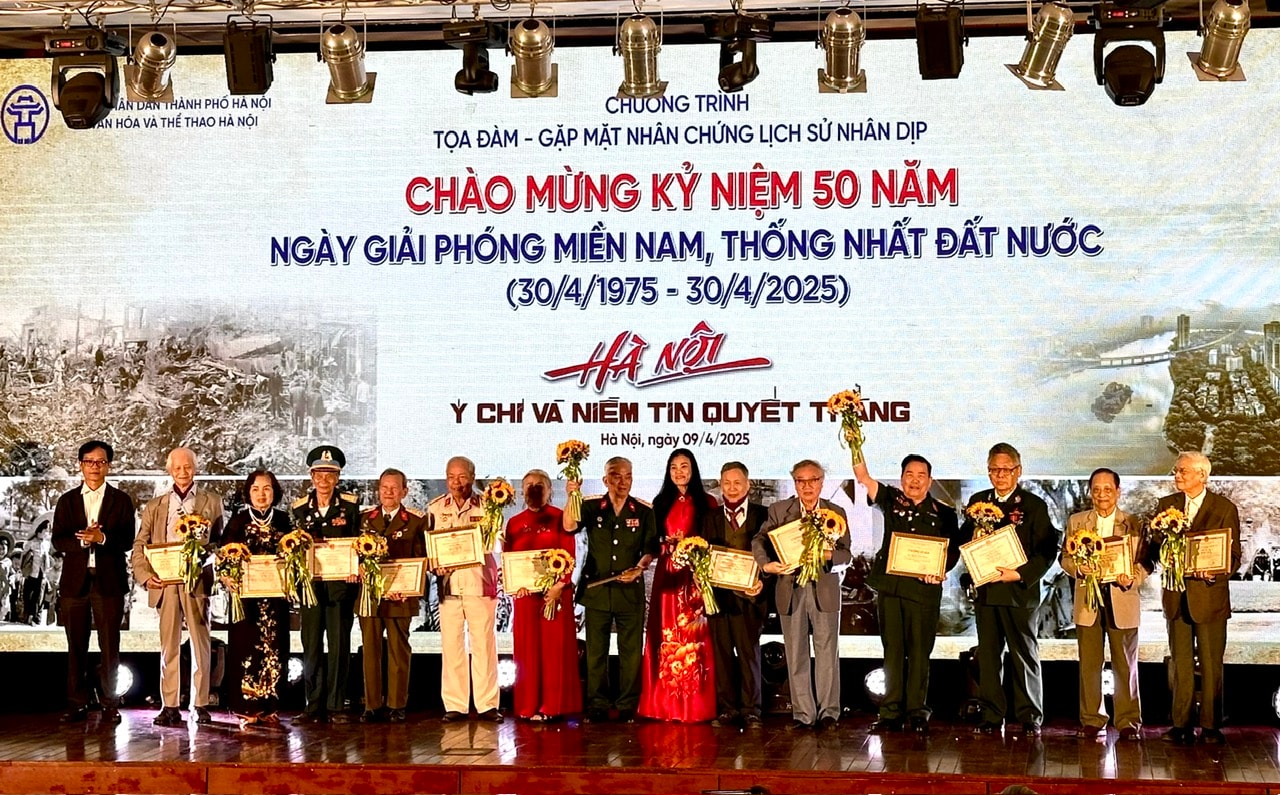Speaking at the program, Director of the Hanoi Department of Culture and Sports Bach Lien Huong said the event was not only an opportunity to recall unforgettable historical memories but also a moment to express gratitude to the heroes who sacrificed their lives for the cause of national liberation and reunification. It was also a chance for everyone, especially the younger generation, to better understand the tradition of patriotism and the unwavering fighting spirit of revolutionary soldiers.

Delegates at the event.
"Hanoi – the capital and heart of the nation – bore a great responsibility for the struggle to liberate the South and reunify the country. Hanoi was always a steadfast rear, a source of trust and support, always looking toward the South with the deepest affection and the spirit of 'all for the beloved South', wholeheartedly joining the country in encouraging and supporting the resilient struggle of the people and soldiers in the South, providing manpower and resources to secure final victory," said Huong.
The seminar "Hanoi – Will and the Determination to Win" focused on historical developments from 1954 to 1975, structured around three main themes: the North as a steadfast rear, the 1972 "Dien Bien Phu in the Air" victory, and the 1975 Spring Offensive that led to the country's reunification.
The event offered the audience authentic and emotional stories about wartime experiences from historical witnesses who directly participated in or observed key moments in the national liberation struggle. These included Colonel and Hero of the People's Armed Forces Dinh The Van; Meritorious Artist and Director Pham Viet Tung; Nguyen Xuan Thuan; Captain Vu Dang Toan; Pham Duy Do; and Sergeant Ngo Sy Nguyen.
The public was reminded of the nation's proud history through stories about the "Three Responsibilities" movement among Hanoi's women, such as Dang Thi Ty, former commander of the Day Dam militia unit (Dan Phuong district). For her, those days immersed in the local movement remain unforgettable. In February 1965, 12 women, aged around 18 to 20, including Ty, were admitted to the Communist Party and assigned to guard duty at the Day Dam, equipped with a 12.7mm machine gun.

Overview of the event.
Another story came from Nguyen Thi Sang, who, at the age of 20, was tasked with managing military trains transporting soldiers to the South to support the 1968 Tet Offensive. "The job of the train leader at that time was to oversee the entire convoy. The 'Three Responsibilities' train crew was composed entirely of women, with eight members serving 13 to 15 carriages. When enemy aircraft attacked, crew members had to signal for the train to stop in time. At the time, Thanh Hoa Station was one of the most frequently bombed locations," Sang recalled.
A particularly emotional part of the seminar was when witnesses recounted the moment when Tank 390 crashed through the gates of the Independence Palace, marking a historic moment that signaled the collapse of the Saigon regime and the complete liberation and reunification of Vietnam.
"In the Ho Chi Minh Campaign, we went through many battles and traveled many winding, perilous roads, but perhaps the turn where Tank 390 broke through the gates of the Independence Palace at noon on April 30, 1975, was the most beautiful turn of my life," said Nguyen Van Tap, the driver of Tank 390.